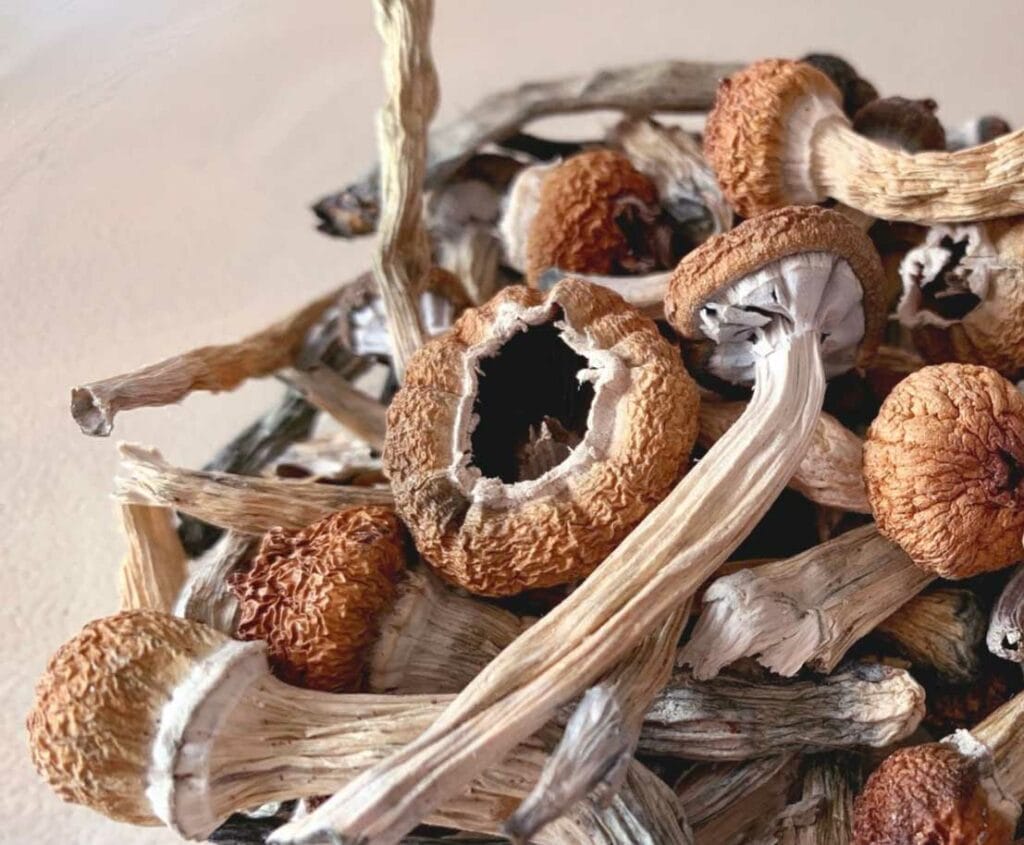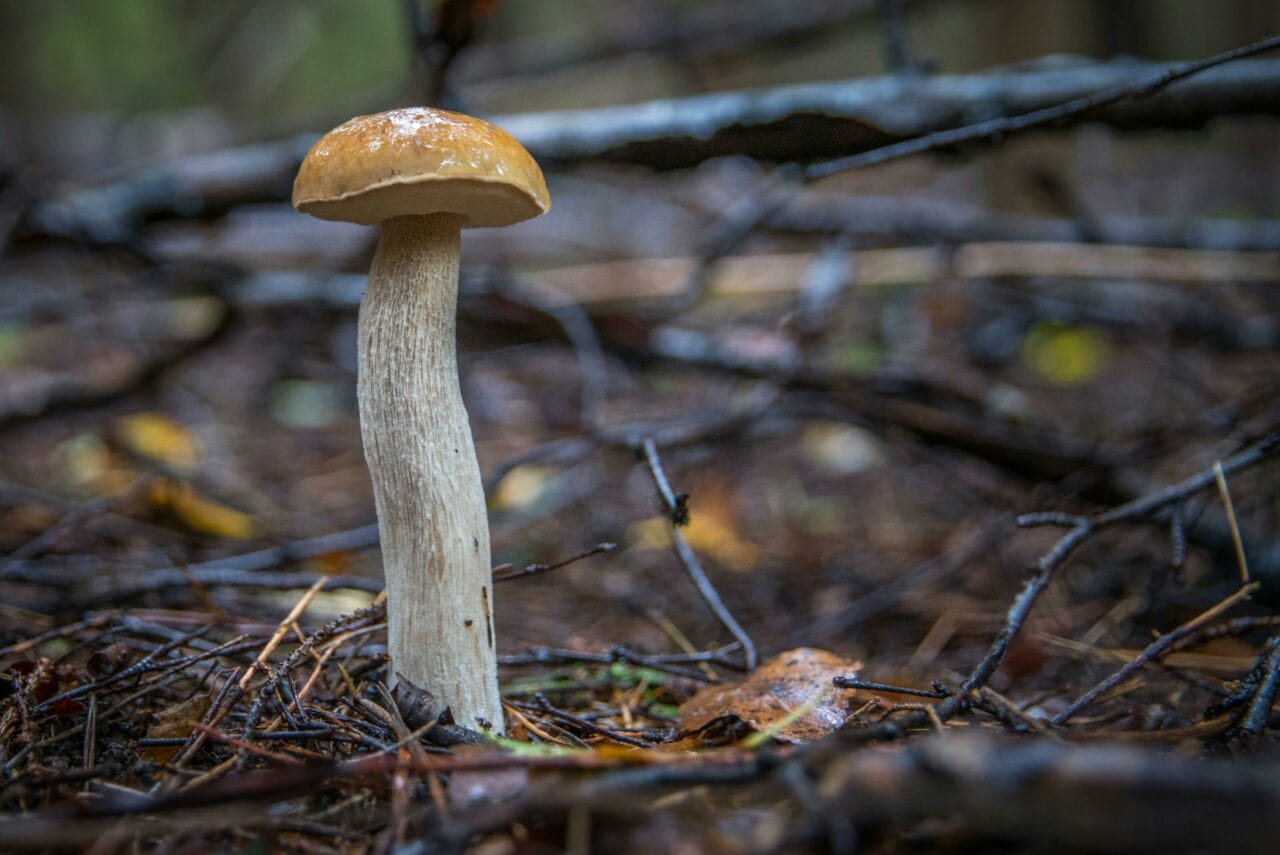As research into the impact of psilocybin on the human brain continues, scientists keep unveiling remarkable findings. A 2023 study by Washington University demonstrated that psilocybin could potentially reduce the activity in the brain area responsible for memory and perception for over a week. This extended disruption might be associated with the substance’s mood-enhancing properties.
This recent revelation paves a new avenue for individuals with mental health conditions, offering them a broader spectrum of treatment options. The increased flexibility of the brain, coupled with the mood-boosting effects, could potentially offer longer-lasting relief than traditional medications. Additionally, it is economically viable to purchase it from shrooms online.
[toc]
Key Takeaways:
- Desynchronization acts as a reset function, enabling individuals with depression to establish healthier and more dynamic neural connections.
- It aids in treating depression, anxiety, PTSD, and addiction by fostering neuroplasticity and modifying neural connections.
- Patients dealing with depression have reported that a single dose can promote positivity, mood, and behavior.
Understanding Magic Mushrooms
These fungi are recognized for their psychoactive components, notably psilocybin and psilocin, which can induce altered states of consciousness. These changes can lead to visual and auditory hallucinations, changes in perception, and intensely emotional experiences.
For ages, they have been utilized in various cultural and spiritual practices and are commonly referred to as “shrooms,” “mushies,” or “hongos.”
The Psychedelic Substance
The most notable attribute of this fungi is its psychedelic substance. When ingested, it converts into psilocin, which interacts with serotonin receptors (5-HT2A receptor). This interaction triggers alterations in brain connectivity and perception, leading to a hallucinogenic effect and potential therapeutic advantages.
It disrupts regular connectivity, which leads to enhanced interaction between previously disconnected brain regions, fostering new expanding perspectives and enhancing mental flexibility. This temporary shift in consciousness can trigger profound realizations that may act as therapeutic treatment for disorders such as depression, PTSD, and anxiety.
This substance has been the subject of extensive research in numerous clinical trials, even gaining approval from Health Canada as a revolutionary medication.
Recent Research on Brain Activity During and After Use
A research study was conducted by the Washington University School of Medicine to investigate the immediate and lasting neurobiological and psychological effects of psilocybin. The study aimed to understand the influence of these substances on synaptic connections and the longevity of these effects.
Methodology
Psilocybin and methylphenidate were given to healthy young adult subjects on separate days, and they underwent routine MRI scans (approximately 18 times) before, during, between, and after each dose.
Functional MRI (fMRI) was employed to monitor synaptic connections and activity at different stages. This allowed for a comprehensive analysis of immediate and sustained effects on brain networks.
While in the scanner, participants were asked to carry out a simple auditory-visual matching task. They completed this task accurately during the drug sessions.
Key Findings
- Immediate Changes: There was a significant disruption in connectivity across cortical and subcortical networks, with changes more than three times greater than those seen with methylphenidate.
- Desynchronization: There was a remarkable reduction in network synchronicity, particularly in the “default mode network.” This network, which includes interconnected regions like the thalamus, basal ganglia, cerebellum, and hippocampus, is typically more active during self-reflection and mind-wandering than when concentrating on specific tasks.
- Task Impact: Despite the noticeable changes in functional connectivity, participants’ performance during the auditory-visual matching task remained consistent under the active substance. This implies that the changes in functional connectivity are unlikely to be the result of altered neurovascular coupling.
- Long-Term Effects: A sustained decrease in connectivity between the anterior hippocampus and DMN was noted for several weeks, but it normalized after 6 months.
- Methylphenidate induces immediate changes that are less intense and less brain connectivity.
Views from Specialists
Dr. Joshua Siegel, a psychiatrist at Washington University School of Medicine in St. Louis and the main author of the study, theorizes that psilocybin encourages a more flexible form of
Enhanced connectivity could possibly contribute to depression management. By promoting brain flexibility, long-term cognitive alterations could be enabled. This desynchronization might act as a reset button for individuals with mood disorders, encouraging healthier and more dynamic connectivity.
How Psilocybin Affects the Brain
The active compound modifies an individual’s sense of time and space, and changes their feelings of connection to their environment. Although these subjective experiences typically dissipate quickly.
It influences cells that react to serotonin, a crucial chemical messenger. Temporarily activating receptors in high-density areas, like the medial frontal lobe, triggers enduring effects. This activation interrupts established pathways and encourages the formation of new connections.
When participants performed a basic word-picture matching task, desynchronization was lowered, since the default mode network was inactive during this task. This might clarify why decreasing external stimuli—like wearing eyeshades—can intensify engagement with the psychedelic journey.
Lasting Effects on Brain Disruption
While the immediate effects fade once the drug is metabolized, the above study found that disruptions in connectivity between the DMN and the anterior hippocampus—a region associated with memory and emotion—can continue for several weeks.
This prolonged alteration might foster brain plasticity, potentially facilitating long-term changes in cognitive and emotional processing. These lasting experiences could add to the therapeutic potential of the drug.
Dr. Petros Petridis, a psychiatrist at NYU Langone Center for Psychedelic Medicine, remarks, “Psilocybin could open a window for change, which a therapist can then guide the patient through.”
Possible Benefits for Mental Health Conditions
The influence may also reach emotional processing, with changes in the activity of brain regions involved in emotion regulation. For instance, it can affect the amygdala, an area tasked with processing emotions, which could lead to modifications in emotional responses and mood.
These alterations in emotional responses could potentially and joy, hallucinations, and intense laughter.
- Depression: Positive attitudes, mood, and behaviour can be improved after two months of treatment sessions and a 14-month follow-up involving moderate to high doses.
- Anxiety Disorders: It could potentially reduce anxiety, especially existential or end-of-life anxiety, by altering self-perception and reality. This alteration can promote a greater understanding and acceptance of personal fears.
- Post-Traumatic Stress Disorder (PTSD): It aids in the rapid and lasting reduction of emotional responses to traumatic memories by encouraging fear extinction. It could also enhance hippocampal neuroplasticity, thus strengthening the brain’s ability to establish new connections and adapt.
- Obsessive-Compulsive Disorder (OCD): By disrupting rigid neural pathways and fostering cognitive flexibility, it can potentially mitigate obsessive thoughts and compulsive behaviours.
- Substance Use Disorders: It could potentially aid in fighting addiction by providing profound insights into the nature of addiction and promoting a shift in perspective.
Selecting Magic Mushrooms to Help Reduce Depression Symptoms
Looking for mushroom products to help with depression? This range of Psilocybe cubensis, known for its use in spiritual and religious ceremonies, offers reliable strains.
| Dried Magic Mushrooms | Description | Effects |
| Blue Meanies | Characterized by a 4 cm wide smooth surface and displays blue bruising, giving it its name. | Produces feelings of joy, hallucinations, happiness, and intense laughter |
| Golden Teacher | Renowned for its spiritual or shamanistic effects, it’s a staple in the Psilocybe cubensis realm. | Induces bright colours, intense emotions, visual distortion, and a feeling of lightness or giddiness |
| Albino Zilla | Sturdy and thick, entirely ghostly white with occasional dark bruising. | Encourages creativity, sociability, euphoria, positivity, and a body buzz |
| Atlantic Treasure Coast | Native to the Southern Florida Gulf Coast, featuring pale caramel-colored caps. | Enhances mood, stimulates pleasure, joy, and deep insight |
In addition to dried psilocybin-enriched mushrooms, magic mushrooms can also be consumed through edible mushroom products, mushroom tea, and other forms. Explore these convenient products available for purchase:
- Wonder – Birthday Cake Chocolate Bar
- Wonder – 3000mg Cherry Cola Gummies
- Bright Future – 3000mg Dark Chocolate & Sea Salt
Safely Alleviate Anxiety, Depression and PTSD with Online Shrooms
Recent research has deepened our understanding of how the active ingredient in Psilocybe cubensis affects the brain. This disruption can last for a week, leading to a temporary change in consciousness. This psychedelic journey can foster profound reflection and offer benefits for conditions such as depression, PTSD, and anxiety.
Are you searching for a reliable source to buy shrooms online in Canada? Strongest Magic Mushroom Strain Canada is committed to promoting mental health by providing exceptional quality magic mushrooms as a potential therapeutic aid for anxiety, depression, and PTSD. We strive to harness the unique attributes of these fungi through our carefully curated selection of online magic mushrooms.
Frequently Asked Questions
Can mixing Psilocybe with antidepressants enhance their effects?
At present, there’s insufficient evidence to substantiate a toxic interaction between antidepressants (SSRIs or others) and Psilocybes. The active substance does not increase the risk of serotonin syndrome when combined with a single antidepressant. Most recent clinical studies involving shrooms either require participants to gradually taper off their SSRIs or exclude these individuals from the study.
Is microdosing Psilocybe shrooms a possibility?
If you’d rather not experience the full psychedelic effects of dried shrooms, microdosing could be an option.
- Purchase and Ready the Shrooms: Procure the mushrooms and grind them into a fine powder.
- Determine the Dose: Weigh out approximately 0.1 to 0.3 grams (100-300 mg) of the dried mushrooms.
- Set a Dosing Schedule: Adopt a regular routine, such as taking the dose every three days or adhering to a two-days-on, one-day-off cycle.
- Measure and Consume: Use a high-precision scale for accurate measurements and consider taking the dose on an empty stomach for maximum absorption.
- Monitor and Adjust: Keep a journal of your experiences and adjust the dosage or schedule as per your personal observations.
Is it safe to buy magic mushrooms online for therapeutic use?
Compared to purchasing from questionable sources, online buying is a safer choice.
- Make sure to review detailed information about the products, including their source and quality. Reliable sellers offer lab test results or other forms of assurances to validate the authenticity and purity of their psychedelic mushrooms.
- Your payments and personal data are protected with website encryption, safeguarding your private and financial details.
- To steer clear of harmful varieties, always purchase from trusted vendors. Verify customer reviews and contact the dispensary to ascertain their reliability.
Suggested Articles for You:





